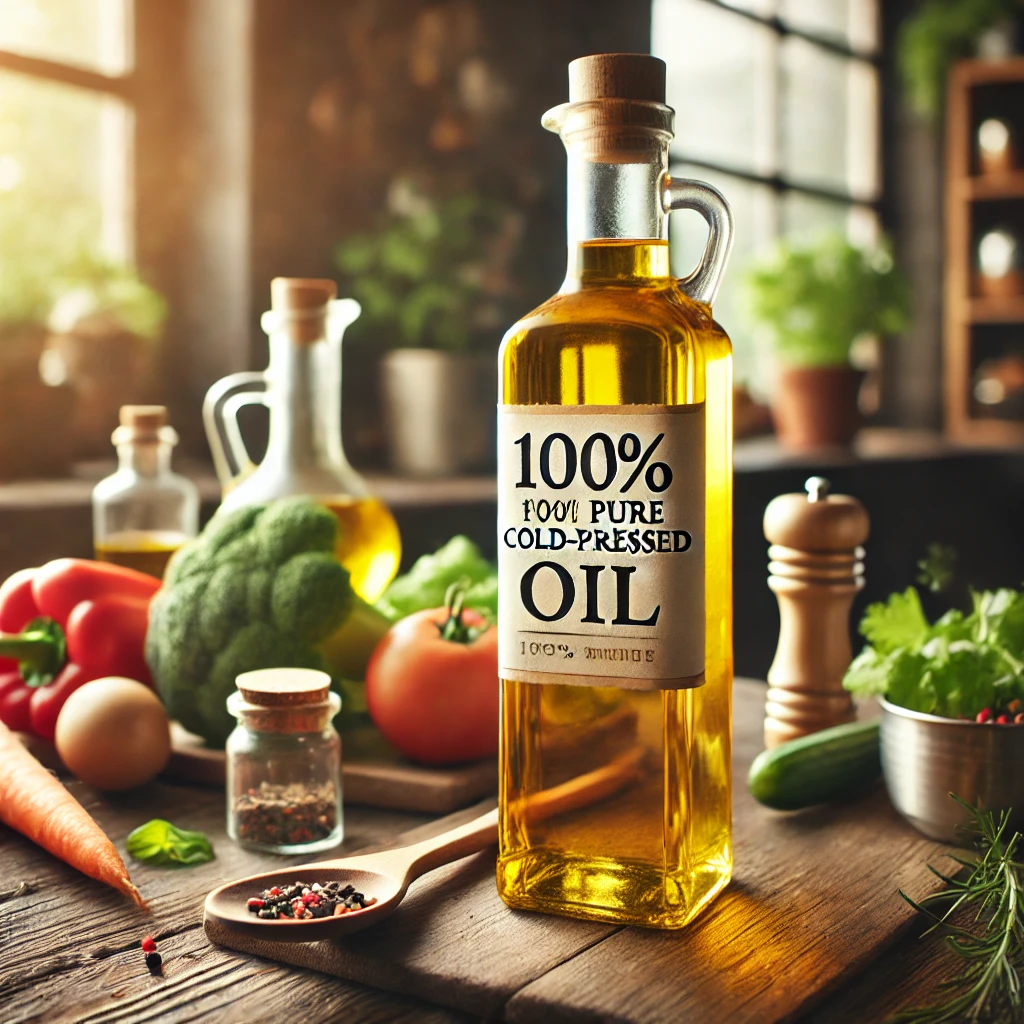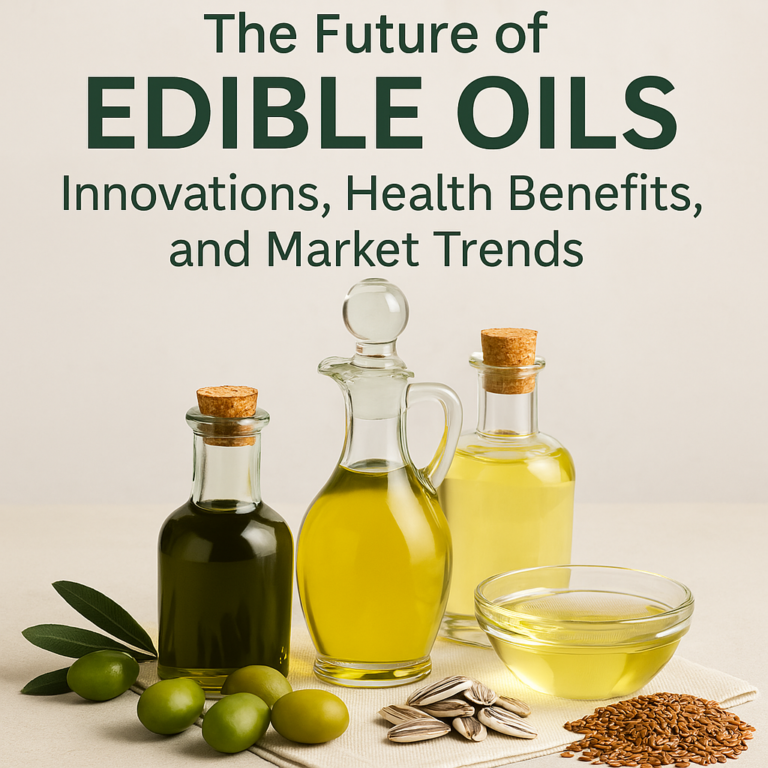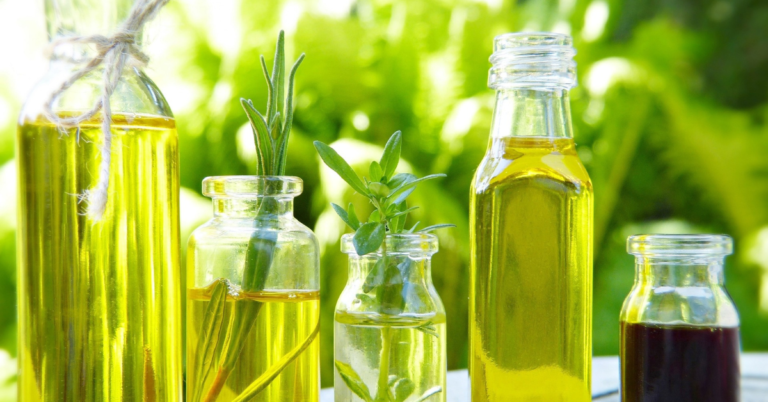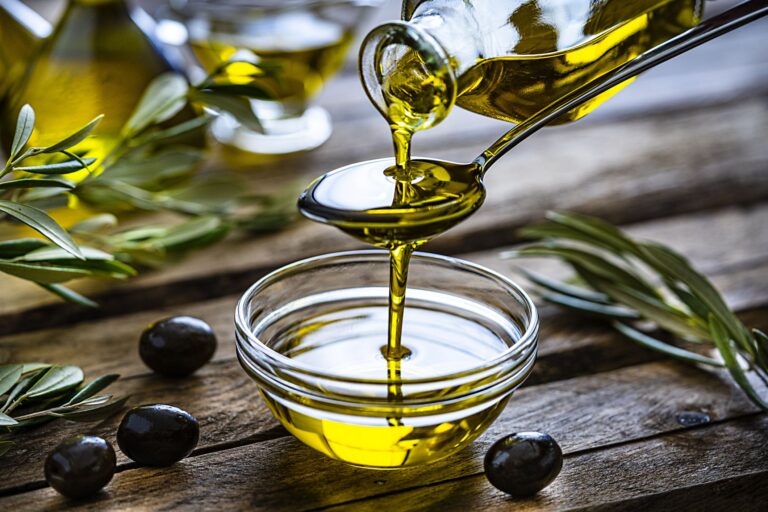
Imagine this: you’re in your grandmother’s cozy kitchen, surrounded by the warm aroma of spices and fresh vegetables. As she prepares your favorite dish, she pulls out a bottle of golden oil — cold-pressed and pure. “This is how we’ve cooked for generations,” she says with a proud smile. Little did we know, that bottle holds not just flavor but a treasure trove of health benefits. In today’s fast-paced world, as we chase convenience, it’s worth pausing and asking: Are we losing out on something essential by choosing refined oils over their cold-pressed counterparts?
Health Benefits of Edible Oil: What Makes Cold-Pressed Oils Special?
Cold-pressed oils are extracted using a traditional method that involves crushing seeds or nuts at a controlled temperature (usually below 120°F). Unlike refined oils, no heat or chemicals are used in this process. This preserves the oil’s natural nutrients, flavor, and aroma, making it an ideal choice for health-conscious individuals. The health benefits of edible oil are undeniable when you choose cold-pressed options, as they retain their full nutritional profile.
Modern refining processes strip oils of their nutrients and introduce chemicals to extend shelf life. But cold-pressed oils stay true to their roots, delivering wholesome nutrition directly to your plate. Studies show that cold-pressed oils retain up to 85% of their original nutrients compared to just 40% in refined oils. [Source: National Center for Biotechnology Information]
Healthier Fats, Better Lives
Cold-pressed oils are packed with heart-healthy fats like monounsaturated and polyunsaturated fatty acids. These good fats play a crucial role in reducing bad cholesterol levels, improving heart health, and even managing weight.
For instance, mustard oil — a popular cold-pressed oil — contains omega-3 fatty acids that help lower inflammation and support brain health. Research highlights that cultures with higher omega-3 consumption have lower risks of heart diseases. Coconut oil, another favorite, boosts immunity and aids digestion. Comparing coconut oil to olive oil often sparks debates, but cold-pressed versions of both provide unique benefits when used correctly.
These types of edible oil offer diverse benefits, ensuring you can choose one that aligns with your health goals.
Real Stories, Real Impact
Consider Priya, a 35-year-old mother of two. She switched to cold-pressed oils after her doctor warned her about high cholesterol. Within six months, her lipid profile improved, and she noticed a positive change in her energy levels. Priya’s story is not unique — many people are experiencing life-changing health benefits by simply choosing better cooking oils.
Most Consumed Edible Oil: Breaking Down the Types of Edible Oils
There’s a variety of cold-pressed oils available, each offering unique benefits:
- Mustard Oil: Excellent for heart health, boosts skin glow, and fights inflammation. The health benefits of mustard oil are well-documented, making it a staple in many households.
- Coconut Oil: Enhances metabolism, improves digestion, and supports hair health. It’s often compared to olive oil in terms of versatility and nutrition.
- Sesame Oil: Rich in antioxidants, helps control blood pressure.
- Olive Oil: A staple in Mediterranean diets, known for heart health and weight management.
Each oil has a distinct profile that caters to specific health goals. Choosing the right oil can transform your cooking and overall well-being. This variety highlights the types of edible oil available and their specific uses.
Price Rise of Edible Oil and the Pursuit of Purity
Cold-pressed oils might seem pricier compared to refined oils, but their long-term health benefits make them a worthwhile investment. With the rising price of edible oil globally, it’s crucial to weigh cost against quality. Refined oils might save money upfront, but they often lead to health issues that cost much more in the long run.
A report by the Food and Agriculture Organization highlights the environmental impact of oil refining processes. Refining produces chemical waste, while cold-pressed methods are eco-friendly and sustainable. By choosing cold-pressed oils, you’re not just prioritizing health but also supporting environmentally responsible practices.
Extract Oil vs. Essential Oil: Know the Difference
It’s easy to confuse extract oils (like mustard or sesame oil) with essential oils (used for aromatherapy). Cold-pressed edible oils are extracted directly from seeds and are meant for cooking, whereas essential oils are highly concentrated and not suitable for consumption. Knowing this distinction ensures you’re using the right oil for the right purpose.
The Shift Towards Healthier Lifestyles
As the awareness of healthy eating grows, cold-pressed oils are becoming the go-to choice for families worldwide. The global market for cold-pressed oils is expected to grow by 8.5% annually. People are moving away from highly processed foods and embracing simpler, natural alternatives. This trend reflects an increasing preference for the health benefits of edible oil.
Small Changes, Big Results
Switching to cold-pressed oils might seem like a small step, but it’s one with significant ripple effects. Imagine the cumulative impact of consuming heart-friendly fats, antioxidants, and unprocessed nutrients daily. Your body will thank you with better energy, improved immunity, and enhanced overall health.
Conclusion
Cold-pressed oils bring the best of nature’s goodness to your kitchen, offering unmatched health benefits while preserving the environment. In a world filled with shortcuts and quick fixes, they remind us of the value of authenticity and purity. So, as you stand in the cooking oil aisle next time, ask yourself: Which bottle will nourish not just my body but also my soul?



